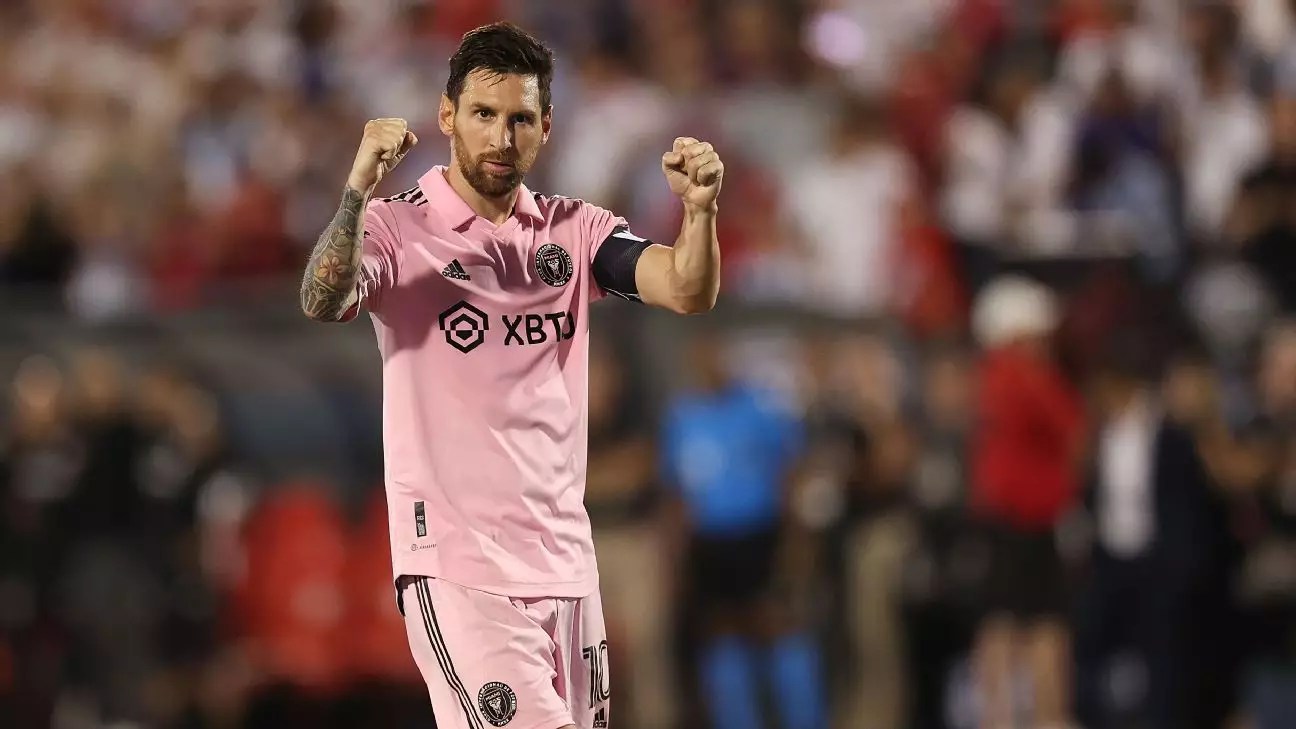Few athletes have wrought as profound a change in their sport as Lionel Messi has within Major League Soccer (MLS) since his arrival with Inter Miami. His mere presence has transformed match days into events, drawing record crowds, boosting merchandise sales, and sparking unprecedented fan engagement. From Vancouver to Miami, teams are facing an acute awareness of Messi’s magnetic allure, and the impact is palpable across the league. This season, as teams prepare to host Inter Miami, they are adapting their strategies not just to combat Messi on the pitch, but to tap into the rising tide of “Messi mania” that follows him everywhere.
The implications of Messi’s presence for attendance figures cannot be overstated. Even in matches where he may not play, such as the notable game against the Vancouver Whitecaps, the allure of witnessing a world-class team attracts fans in droves. With the announcement that Messi, Luis Suárez, and Sergio Busquets might not be playing, Whitecaps CEO Axel Schuster felt it necessary to inform fans early, an unprecedented move in its own right. Nevertheless, this type of transparency signifies an acknowledgment of the changing dynamics in MLS, as clubs realize that a star player’s absence can still create significant disappointment among fans.
Attendance records have increasingly been shattered since Messi’s arrival. Several teams observed sellout crowds when facing Inter Miami, with reports of over 72,000 fans attending a game against Sporting Kansas City, underscoring how Messi has elevated the profile of each match. Charlotte FC and Atlanta United have also reaped the rewards of Messi’s presence, drawing record crowds far exceeding their usual figures. In a way, every game against Inter Miami feels like a historic event, as fans flock to witness the spectacle that surrounds Messi and his teammates.
The influx of fans has compelled teams to rethink marketing strategies and enhance fan experiences. As Inter Miami visits cities, franchises proactively adapt their ticketing policies to accommodate the expected surge in attendance. Historically, many teams would limit ticket sales to certain sections, but preparations for games against Messi’s team necessitate opening up the entire stadium. These adjustments are evident in franchises like Sporting Kansas City and the New England Revolution, which have shifted to larger venues to capitalize on the post-Messi increase in audience figures.
In Vancouver, the decision to offer a staggering 50% discount on stadium food serves as an acknowledgment of the disappointment fans may feel not seeing Messi play. This strategic move demonstrates not only a grasp of the situation but an effort to ensure fans enjoy their experience and remain engaged with the club, despite the absence of a star player.
The Ripple Effect on the League
The resonance of Messi’s impact extends beyond attendance figures and local enthusiasm. It has redefined how MLS franchises market themselves and engage with fans globally. Following the surge in demand, clubs began launching targeted social media campaigns to leverage fan excitement. The anticipation of facing Messi prompts different considerations, as teams approach such matches with strategies aimed at optimizing not just win-loss records but financial outcomes, with enhanced merchandise sales indeed becoming a significant aspect.
Moreover, the implication of Messi’s presence is far-reaching, impacting the league’s overall brand value. As MLS Commissioner Don Garber pointed out, the metrics have been spectacular, with an overall average attendance increase of over 23,000 in 2024. This growth signals that Messi isn’t merely a player; he represents a shift in how American soccer is perceived both domestically and internationally. This shift may ultimately lead to further investment in the sport as franchises compete to attract prominent players, enhancing MLS’s credibility alongside more established leagues around the world.
As Lionel Messi enters his third season in Major League Soccer, his influence continues to grow. The 2025 season looms as a critical juncture, with questions about his future adding an additional layer of urgency for teams to capitalize on his presence. By creating extraordinary fan experiences, breaking attendance records, and shifting marketing strategies, clubs are now more than ever aware of the seismic effect a single player can create.
In a league where attendance has been traditionally challenged, Messi has proven to be the key to unlocking the gates. Teams have recognized that while they strive for victories on the pitch, the mere opportunity to host football’s modern-day legends like Messi can translate to countable, tangible success off the pitch as well. As long as Messi remains in MLS, the excitement he brings to stadiums will likely continue to reverberate throughout the league, ushering in a golden age of American soccer.


Leave a Reply